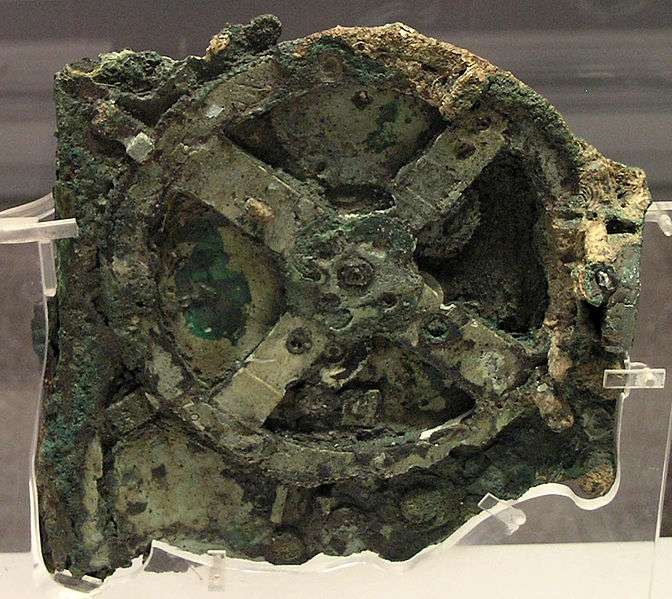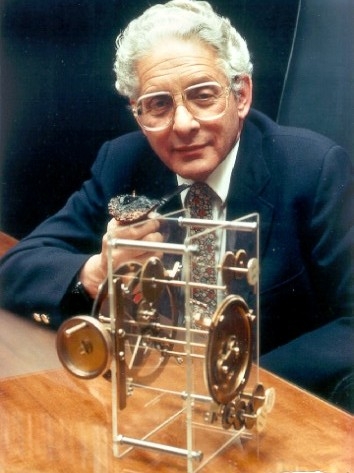Computer has emerged in 21st century as a basic necessity for sustenance of our daily life requirements. Everything we know and everything we use is related to computers on same level. But an important question one would ask here is, when did the computers first originate? While most of us think and believe that computer originated in the 20th century, but the real facts are very different. The origin of computer occurred much before than what our imagination and common belief tells us. In fact, the first known computer originated much before birth of Lord Jesus Christ.
The story starts in ancient Greece civilization, one of the earliest civilizations of the world, which in later days fell into Roman hands & became a part of Roman empire. The Roman empire and its rulers knew the contribution of ancient Greek philosophers and intellectuals, in growth of different aspects of science, arts and culture. As the new rulers of the Greek lands, they transferred its riches and other treasures to their own country, by land or through the sea. One of such Roman ships dating to 1st century BC, was passing from Asia Minor to Italy carrying priceless items. Unfortunately, it sunk off the coast of a small Greek island named Antikythera & the treasures were lost to the sea, or that is what it appeared at the time.
Almost 2000 years later in 1900, a shipping crew of sponge divers were passing along the Greek island of Antikythera, where they decided to explore the sea bed. It was here at almost 150 feet under the waters that the divers, accidently stumbled across ancient sunken treasures, dating back to ancient Greek Civilization. Soon officials from the Greek government joined the expedition and together with the sponge divers, successfully salvaged many priceless items of the great Greek civilization of antiquity.

The treasures salvaged included many statues of Bronze and marbles (including statues of Hermes, Apollo and Hercules), jewellery, remains of the ancient ship, pottery, glassware, ancient bronze and silver Greek coins dated 70 BC to 60 BC. All the artefacts were placed in National Museum of Archaeology in Athens, for storage and research purpose. It was in the year 1902, that an archaeologist named Valerios Stais, while studying the old artefacts, stumbled upon the now famous Antikythera mechanism (which at the time was an ill-defined mass of corroded bronze and wood and hence ignored previously), which is now widely regarded as the world’s first computer.
As previously described Antikythera mechanism, refers to an object excavated from the ancient ship wreck off the coast of Antikythera island. Soon after bringing it out from the seabed, it disintegrated into many different pieces of bronze masses. The previously mentioned archaeologist – Valerios Stais, discovered fine gear wheels and ancient Greek writings in the artefact, which piqued his interest. Initially thought to be an earlier version of mechanical clock, it would later be discovered to be something of much more importance.
Carefully preserved in National archaeological museum of Athens along with the other discoveries obtained from the same site of Antikythera ship wreck, soon the ancient scientific marvel attracted scholars from far and wide, who were interested to learn more about it. Over the ages many different experts analysed this ancient mechanical marvel, and thanks to their hard work, its secrets gradually started to unravel.
With the advent of many new technologies in 20th century, many features of this ancient creation came into light. Modern scanning equipment, revealed the interior of the machine. Many interlocking gears with perfect precision were found by imaging along with inscriptions, which were found to be akin to a modern-day instruction manual. The numbers written in the inscriptions along with the teeth in the gears, gave the researchers valuable insight to the functioning of the ancient machine. Yale University Professor Derek J de Solla Price was one such esteemed scholar, who after a thorough study published a 70 pages paper on his findings.

The whole instrument was enclosed in a wooden box, corresponding to the size of shoebox and contained over 30 Bronze gears. The gear wheels helped in following the movements of the Sun and Moon through the zodiac, helping to predict eclipses much before they occurred. The mechanism was operated manually - by hand a crank was turned to rotate rings and dials, which represented signs of the zodiac and calendar days.
Scientist and researchers are divided in their opinion regarding who created the Antikythera mechanism. Considering the fact that, the Antikythera mechanism was an invention, which dated back more than 2000 years and it was discovered accidentally; it is quite natural that the name of the creator can be guessed at best, as there is no record of this device in any historical writing. Most researchers attribute this ancient computer, to an ancient astronomer Hipparchus, born in 190 BC. However, some newly discovered inscription, makes many researchers believe that this device was made much before 200 BC. This has made many researchers to claim that it was Archimedes – the famous Greek inventor, mathematician and astronomer, who created the ancient mechanical wonder.

This machine was certainly much ahead for its time. It had the capability to track the phase and position of the moon with very high accuracy, and served a very important function of predicting the solar and lunar eclipse. The advanced information regarding the seasons helped tremendously for farming purposes and to mark important festivals. The Antikythera mechanism had also pointers for Mercury, Venus, Mars and many other planets and all the planetary motions on the mechanism were very accurate. It was also useful to plan and keep track of the ancient Olympic Games which occurred once in every 4 years.
The Antikythera mechanism, is a mechanical wonder, which was far ahead of its time. Unfortunately, the knowledge of this technology somehow got lost in course of time. It would take another 1500 years for similar kind of astronomical clocks to emerge in Europe, which in complexity and workmanship could to some extent resemble the ancient Antikythera mechanism.

The presence of Antikythera mechanism just makes a person wonder, do we really know, all that is to known about human history? How much part of our past is actually hidden to us? Maybe we will never truly know the real answer to these questions. However, when we take pride in our achievements, we should remember that there is a good possibility that our ancestors already knew, the things we are inventing in the present. When we smile on our achievements, our ancestor’s souls in heaven may be laughing at us.